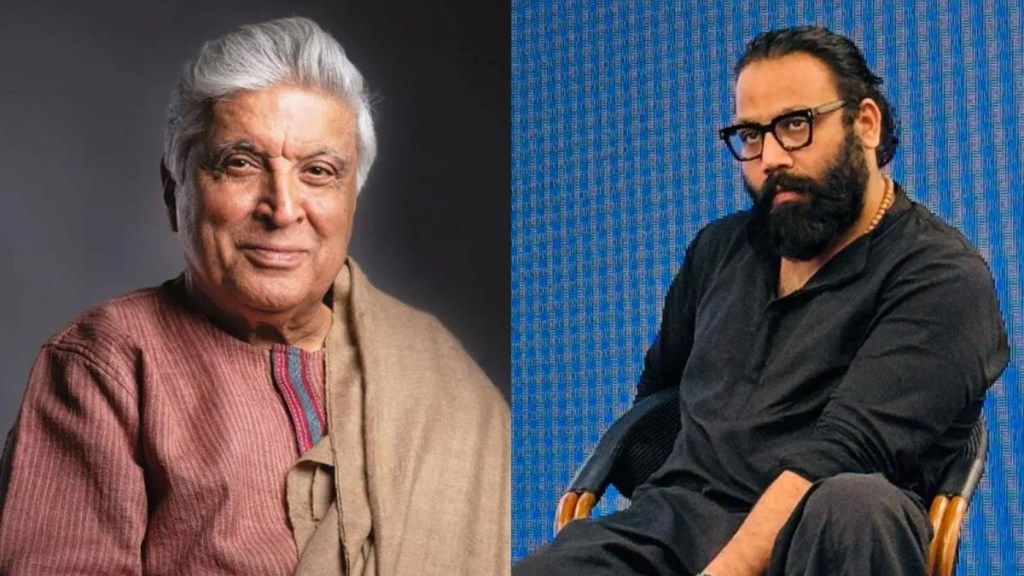Renowned Indian lyricist and screenwriter, Javed Akhtar, has found himself in a public exchange with “Animal” director Sandeep Reddy Vanga. The confrontation arose after Akhtar voiced concerns regarding the rising trend of commercial success garnered by films featuring contentious content, albeit without explicitly mentioning “Animal.” Vanga, however, took offense to Akhtar’s remarks, branding his art as “false.”
Akhtar, in an interview with a digital outlet, expressed his amusement at Vanga’s inability to pinpoint any objectionable content in his extensive 53-year-long career. Despite Akhtar’s deliberate avoidance of direct criticism towards Vanga’s film, “Animal,” the director retaliated by targeting Akhtar’s son Farhan Akhtar’s production, “Mirzapur.”
Vanga questioned why Akhtar hadn’t raised similar objections against “Mirzapur,” a web series known for its explicit content. Akhtar, however, remained unperturbed, asserting that his concerns were aimed at the societal impact of such narratives rather than targeting individual filmmakers’ creative choices.
Acknowledging his reference to “Animal,” Akhtar emphasized the importance of artistic freedom in a democratic society while advocating for responsible storytelling. He highlighted the need for critical discourse surrounding the societal implications of film content, especially when problematic themes garner widespread appreciation.
The debate intensified as Akhtar cited a controversial scene from “Animal,” involving the lead characters Ranvijay and Zoya, to illustrate his concerns. However, Vanga’s team responded by labeling Akhtar’s critique as a misunderstanding of the film’s narrative.
In addition to the cinematic debate, Akhtar also weighed in on the Uniform Civil Code, emphasizing the importance of fair and inclusive discussions on the matter. Identifying as an atheist Muslim, Akhtar shared insights from his personal life, including his divorce from actor-screenwriter Honey Irani, to underscore his commitment to equitable principles.
Despite the heated exchange, Akhtar maintained a balanced perspective, advocating for both artistic freedom and social responsibility in filmmaking. His nuanced approach reflects a deep understanding of the complexities surrounding cinematic discourse and societal reforms, cementing his position as a prominent voice in the Indian film industry.

